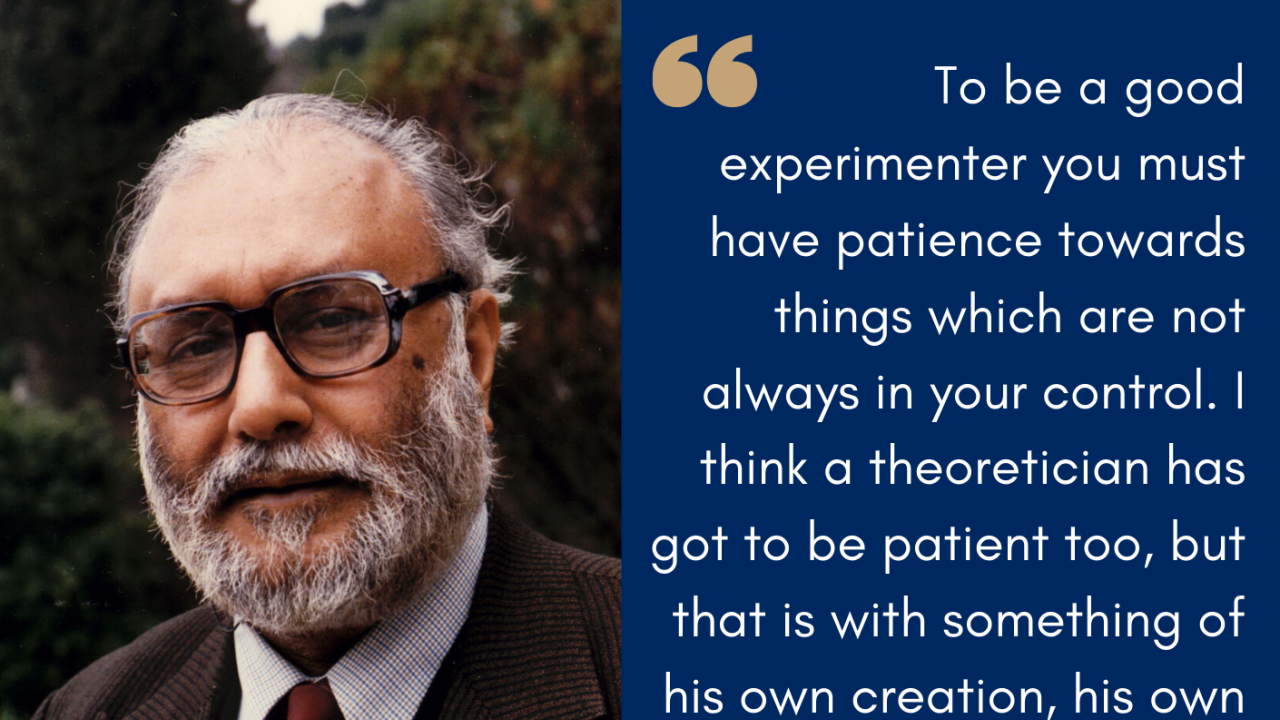
Why be a scientist? Nearly every scientist has a different answer and a different inspiration, drawn from varied careers, outlooks, and experiences. For its 40th anniversary in 2004, ICTP published the book One Hundred Reasons to be a Scientist, a collection of 100 essays from many eminent physicists and mathematicians with a connection to ICTP. The book is a source of many insights from the lives and careers of scientists, including Helen Quinn, Freeman Dyson, Vera Rubin, and Francis K.A. Allotey. The authors discuss what led them to study science, the difficulties they encountered and overcame, and their passions and hopes for the future.
We will revisit these stories highlighting twenty of them in the next few weeks, sharing inspirations from the essays and showcasing the words of these great scientists. During the uncertainty of the current global pandemic, the words will hopefully help researchers feel less alone in their scientific path.
We are starting this week with the story of Abdus Salam, ICTP’s founder. From his childhood in Pakistan, to the foundation of ICTP in Trieste, to the day he won the Nobel Prize in Physics together with Sheldon L. Glashow and Steven Weinberg, you can read his story here.
If you want to learn more about Professor Salam, you can visit this page or check the many resources available for free download from ICTP’s Marie Curie Library, like these two video interviews from 1986 and 1989.
A documentary about Professor Salam, “The Dream of Symmetry”, directed by Diego Cenetiempo and written by ICTP/SISSA scientist Giuseppe Mussardo can now be streamed for free thanks to Pilgrim Films Italy.
And finally, if you are interested in learning about 99 more scientists and what inspired them, you can find the whole book in electronic format for free download on ICTP’s library website, in English, Italian and Urdu.
















